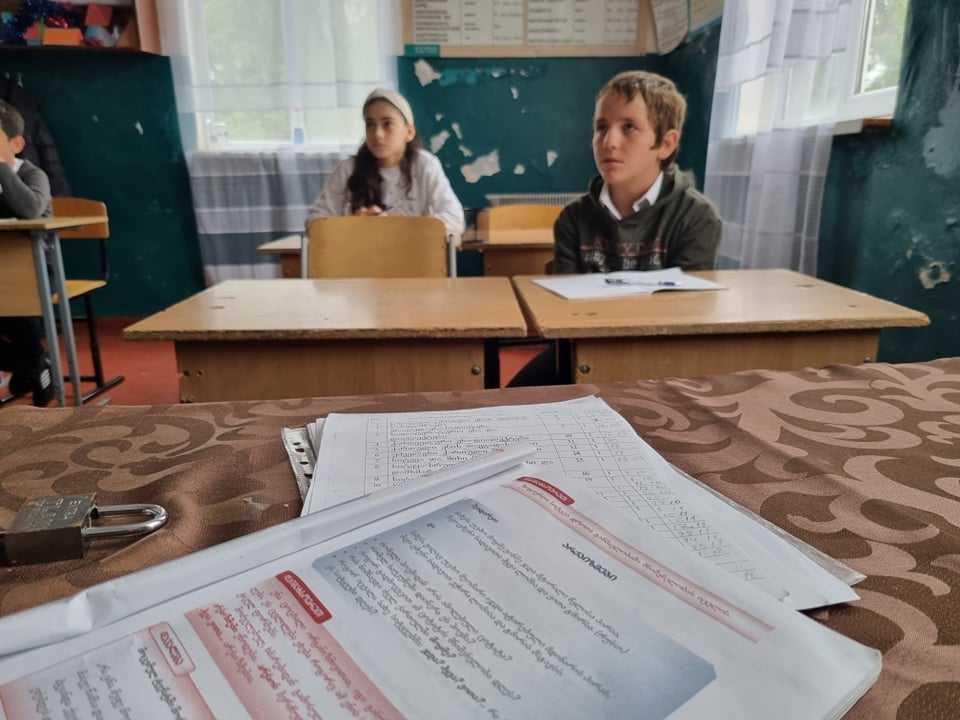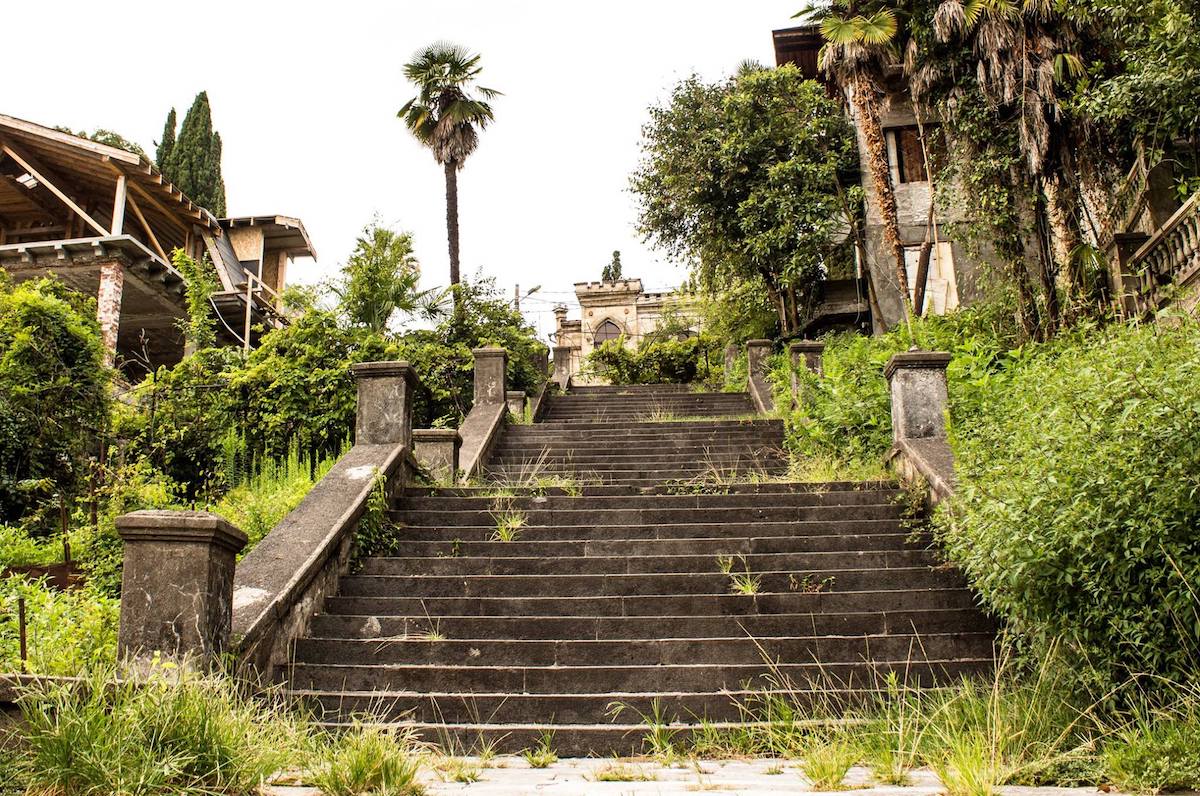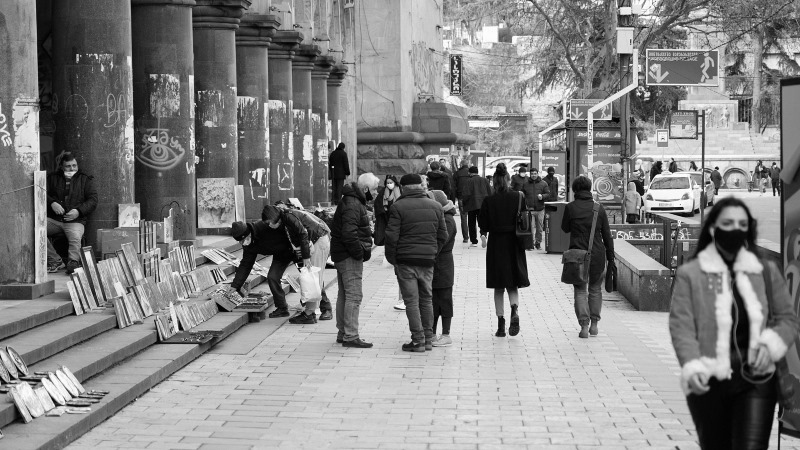Abkhazia changes its budget as Geneva security talks on Caucasus postponed
Geneva discussions postponed amid Russia-Ukraine war
The next round of discussions in Geneva on security issues in the Caucasus, which was supposed to take place in March, has been postponed indefinitely. The reason is the war in Ukraine and the consequent difficulties it posed for the Russian delegation. In Abkhazia, authorities even decided to change the budget because of this, directing the money allocated for Abkhazia’s participation in the negotiations to other needs.
The money for the participation of the Abkhazian delegation in the Geneva discussions will be used for other purposes by the Foreign Ministry of Abkhazia – such a decision was made by the government.
As Deputy Foreign Minister Irakly Tuzhba explained, presenting the draft resolution to the ministers, five million rubles (about $68,000) had previously been allocated to the Ministry of Foreign Affairs for activities related to the participation of the Abkhazian delegation in the international Geneva discussions.
However, “at this stage, as a result of global changes in international politics taking place in the world, the Geneva discussions are temporarily suspended”. Therefore, the Ministry of Foreign Affairs wants to use these funds to solve other urgent problems.
The last round of discussions scheduled for March was postponed due to events in Ukraine, and it is still unknown when the next one will take place. To date, the Geneva discussions are the only negotiating platform between Abkhazia and Georgia.
Why negotiations were postponed
The Geneva discussions on security and stability in the South Caucasus, a new round of which was to be held in March, have been put on hold at the initiative of the UN, the European Union, and the OSCE, Denis Gonchar, director of the fourth department of the CIS countries of the Russian Foreign Ministry, said in an interview with the Russian RIA Novosti agency.
“This is not our choice, the initiative, in this case, belongs to the “troika” of the co-chairs (UN, EU and OSCE), who, by their decision, postponed for an indefinite time the next, 56th round planned for the end of March”, the Russian diplomat said.
According to him, these participants in the discussions actually “took hostage” the most important negotiation format, thanks to which the region “managed to maintain an acceptable level of security and stability”.
“Thus, the entire responsibility for the failure of the negotiations lies completely with them. There are also logistical difficulties that have arisen in connection with the restrictive measures imposed on Russia by the European Union (and this is one of the co-chairs of the Geneva discussions) and Switzerland, which hosts this format on its territory”, Gonchar said.

He stressed that “the unfriendly and politicized steps of Western partners do not help the cause of strengthening stability and security in the South Caucasus” and may “lead to uncertainty in this region”.
Moscow’s accusations were answered by EU Special Representative for Crisis Management in the South Caucasus and Georgia, co-chair of the Geneva International Discussions Toivo Klaar.
“The decision to postpone the last round was taken in order to protect the process and avoid a scenario where the international situation, especially the war in Ukraine, would negatively affect the course of the round itself and, therefore, the discussions in general”, Toivo Klaar said in an interview with Civil Georgia on April 25th.
The EU Special Representative noted that although the regular preparatory meetings prior to the postponed round of talks, originally scheduled for March, had indeed been canceled, engagement with all participants in the discussions continued.
“For example, this week my team and I held meetings in both Tbilisi and Sukhumi”, he said.
According to him, the co-chairs are doing everything to keep the channels of communication between the participants of the discussions open.
He stressed that “the co-chairs remain committed to the Geneva process. Of course, it is important that the discussions in Geneva resume as soon as possible, and we are constantly discussing the situation”.
Speaker of the Georgian Parliament Shalva Papuashvili, answering a question from a journalist from the Georgian Public Broadcaster, confirmed that the Geneva discussions were postponed due to the conflict in Ukraine and can be resumed only after the end of hostilities.
“Amid the ongoing war, this format will be suspended to a certain extent, like many similar issues. Therefore, it is important that the Russian aggression ends as soon as possible so that such issues can be resolved”, Papuashvili said.
What is the Geneva format?
• After the August 2008 war, direct dialogue between Georgia and Russia ceased. In accordance with the ceasefire agreement of August 12, 2008, it was decided to create the format of the Geneva talks, where Russia and Georgia, together with representatives of Sukhumi and Tskhinvali, as well as representatives of international organizations, would discuss various humanitarian issues.
• Before the Abashidze-Karasin Georgian-Russian talks format was created after the current ruling Georgian Dream party came to power, Geneva was the only place where Tbilisi and Moscow talked.
• Negotiations in Geneva take place four times a year.
• The Geneva format does not address the political aspects of the conflict. That is, the status of Abkhazia and South Ossetia and other political issues are not discussed here.
• The Geneva International Negotiations are taking place in two parallel working groups:
• The first group discusses security issues (eg reaching an agreement on the non-use of force between Russia and Georgia, the creation of international security mechanisms in the occupied regions of Georgia);
• The second group discusses the situation of internally displaced persons and their return to their homes. This group also considers important humanitarian issues related to people living in the occupied territories (for example, education in the native language, protection of cultural heritage, free movement of people across the lines of occupation, the health of those living in the occupied territories, criminal cases, human rights, etc. .).
• In addition to Georgia and Russia, representatives of the United States and co-chairs of the OSCE, the EU and the UN participate in the Geneva talks. Representatives of Tskhinvali and Sukhumi also take part in the discussions.
Toponyms, terminology, views and opinions expressed in the article do not necessarily reflect the views and opinions of JAMnews or any employees thereof. JAMnews reserves the right to delete comments it considers to be offensive, inflammatory, threatening, or otherwise unacceptable






















